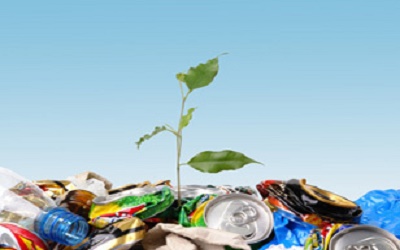PTE考生目前最大的问题之一就是练习题缺乏。除了有限的基本官方书(PLUS,Testbuilder, OG)之外
就没有题了。很多英语基础不是很扎实的同学很难找到练习材料。悉尼文波雅思PTE培训学校专门为澳洲,尤其是悉尼、墨尔本的PTE考生准备了适合PTE听力阅读练习的科学60秒。各位PTE同学可以练习PTE听力中的summarise spoken text和PTE口语中的retell lecture,PTE听力口语-科学60秒-Frosty Moss练习记笔记技巧和复述。废话少说,下面开始:
听力内容:
60秒科学节目(SSS)是科学美国人网站的一套广播栏目,英文名称:Scientific American – 60 Second Science,节目内容以科学报道为主,节目仅一分钟的时间,主要对当今的科学技术新发展作以简明、通俗的介绍,对于科学的发展如何影响人们的生活环境、健康状况及科学技术,提供了大量简明易懂的阐释。
At Brooklyn’s recycling depot, discarded metal and plastic gets bulldozed into a large mound.
The stuff is then scooped onto the first of a series of rising conveyor belts, from which the trash is sorted through means both mechanical and manual.
All that effort produces a variety of salable products, from metals to paper fibers.
But is it worth it?
In the case of an aluminum can the answer is an unqualified yes.
Such a can can be recycled endlessly with no loss of quality.
And recycling a can uses less than five percent of the energy that it takes to refine bauxite ore into fresh aluminum.
Recycling is worth it when it comes to all metals, though we’re better at recycling aluminum than say neodymium.
In principle it could work for plastic, too.
But because plastic is made from petro chemicals, low oil prices can make it cheaper to just dump old plastic and manufacture new.
And plastics degrade as they’re recycled, as does paper.
That said, a simple cost–benefit analysis does not correctly measure the environmental costs of dumping plastics or cutting down more trees for paper products.
The EPA suggests that recycling in the U.S.reduces the same amount of green house gas pollution as taking more than 38 million cars off the road.
The sound of recycling may prove music to the ears of future generations.
aluminum:[ə’lju:minəm] n.铝
neodymium:[ˌni:əʊˈdɪmiəm] n.钕
bauxite:[ˈbɔ:ksaɪt] n.铝土矿





